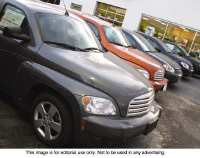How to save money on your next car

Posted by peter88
from the Automotive category at
13 Jul 2011 09:40:14 pm.

Purchasing a new car can be a stressful process. Individuals don't want to overspend, and dealers hope to get the most money. Finding that balance typically takes a little negotiating, a process many people dread.
Buying a car also involves knowing the difference between invoice price, sticker price and other terminology salespeople use. Doing some research before visiting a dealership can make the negotiation process go much more smoothly. It can also help a person get a better price on a car or truck. Here are some tips to follow.
* Think about full price, not monthly payment. Dealerships have financing managers that can tweak numbers to get a payment that fits a person's budget. For those who walk into negotiations saying they want to pay $250 per month, the salesperson can adjust the term of a loan or the interest rate to realize this payment amount. What he or she may not be doing is lowering the price. Instead of shoppers saying what they want to pay per month, they should indicate what they want to pay on the actual price of the car.
* Consider shopping the "internet department" of the dealership. Many car dealerships have a sales floor and then a separate, behind-closed-doors department geared toward internet sales. These salaried salespeople are interested in moving a lot of stock to make the dealership money rather than focusing on their own individual commissions. Therefore, they may be able to give knowledgeable shoppers a more desirable deal. Furthermore, most of the legwork when buying a car can be done through e-mail or phone calls, rather than haggling at a sales desk.
* Buy used. Cars depreciate in value the moment they are driven off the lot. In the first two years, some models decrease in value by 25 to 40 percent. Instead of paying the premium for a new car, purchased a pre-owned vehicle that is a few years old. Many carry decent warranties, or an extended warranty can be included in the purchase.
* Don't buy beyond your means. It's easy for shoppers to be blindsided by the glitz and glam at many dealerships. A single person walking in and buying a 7-passenger extended SUV may be purchasing more than he or she needs. Similarly, he or she may get extra features that aren't needed. For example, many navigation systems that come as extras with cars are pricier than aftermarket, portable GPS devices that are just as effective and easily plugged into a vehicle's A/C adapter.
* Take care of your credit rating. Good credit means a better financing rate. Very few people can walk into a dealership and pay cash for their cars. This means taking out a loan with the financing department or an outside bank. The better interest rate comes to those with a higher credit score. Individuals should keep track of their credit scores and any blights on a record. Not only will this help with saving money on a car, it will affect other purchases as well.
* Price of car affects insurance, too. Some of the higher-end vehicles or sports cars come with a big ticket price -- and also a higher insurance rate. If the goal is saving money, look for a reliable car with good safety ratings. This will help reduce costs on the vehicle as well as insurance.
0 Comments



